“Innovation” could be municipal government’s middle name. When it comes to creativity and resourcefulness – city leaders take a backseat to no one. Local public officials don’t have the luxury of living on the periphery of problems. Instead, they live in the middle of every issue on a daily basis. They, unlike state and federal officials, are easily accessible. Perhaps that’s what has caused them to be innovative and creative in finding remedies and solutions. Or, perhaps these traits are a result of dealing with the largest problem of all – inadequate funding. Whatever the reason, municipal leaders have become known for out-of-the box thinking, innovative problem solving and visionary collaboration.
View this complete post...Posts Tagged ‘urban’
Watch these cities for innovative leadership
Monday, March 5th, 2018The Future of Equity in Cities
Thursday, December 14th, 2017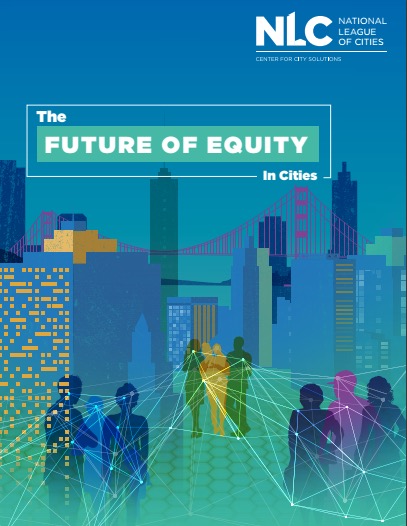
While many cities feel the immediate positive outcomes from wealth flooding into metropolitan regions, they also feel the negative impact on community members of varying income levels – particularly, those at the bottom that face increased housing prices, greater need for social services and growing concern for community safety. The income inequality and wealth gaps are at outsized levels, with the richest 0.1 percent holding the same amount of wealth as the bottom 90 percent. And when examined through a racial equity lens, the disparities become even starker; on average, white families have six times the wealth of African American and Hispanic families. This is where we are now. Unfortunately, the current policy environment at the national level isn’t focused on alleviating these inequities—cities are.
View this complete post...Practicality of Private Sector Funded Infrastructure
Monday, February 6th, 2017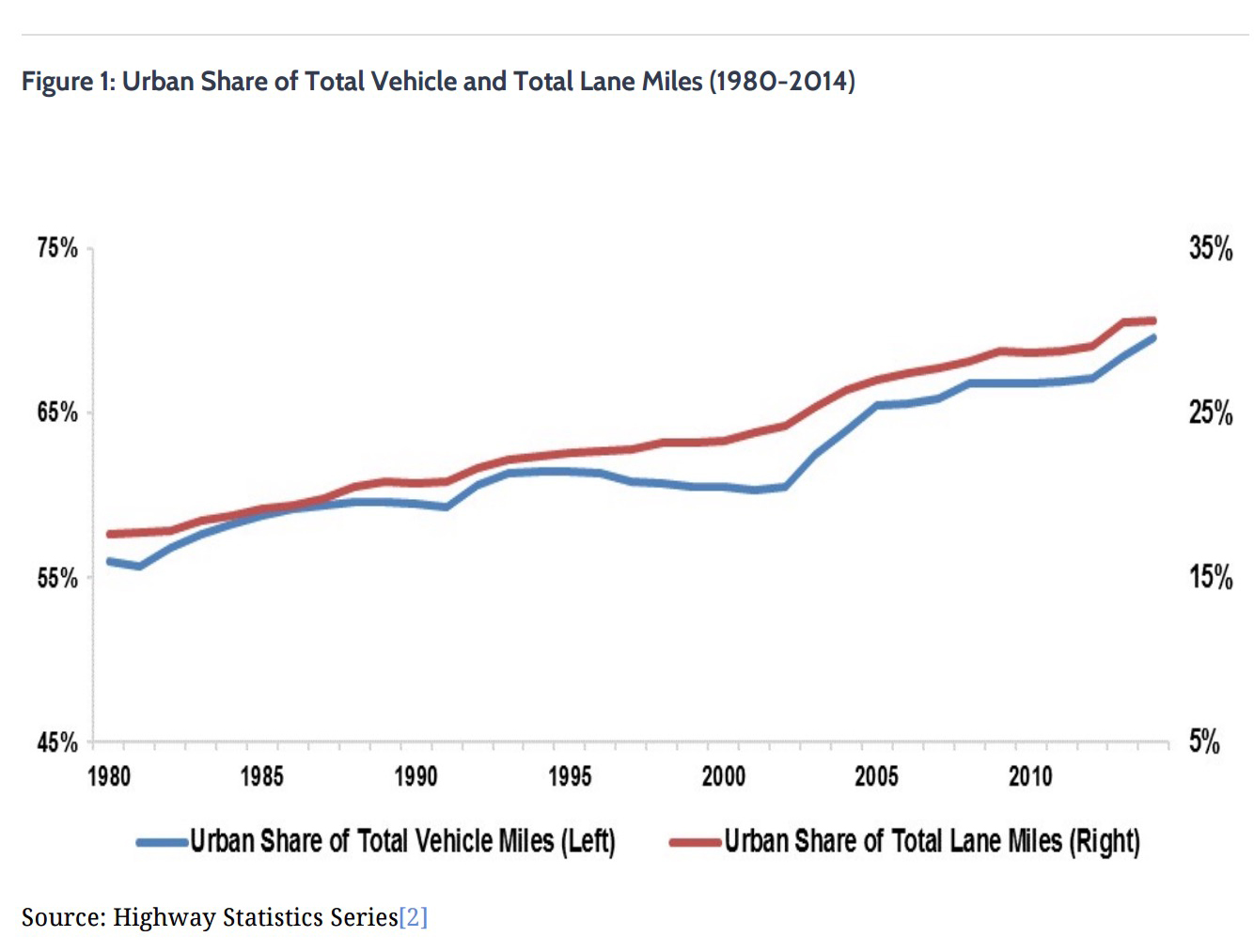
Modernizing America’s infrastructure is a key plank in the next Administration’s economic platform, and transportation infrastructure should be central to this effort. The case can be made that American roadways are inadequate, even as there are more vehicles on the road than ever. The consequence is congested roads and poor road quality. However, President Trump’s plan relies heavily on private sector finance; specifically leveraging less than $200 billion in federal funds for $800 billion in private funds. (Then-candidate Hillary Clinton similarly proposed establishing an infrastructure bank involving the private sector.) Is it feasible to modernize the surface transportation network without greater taxpayer involvement?
View this complete post...Bumpy Roads Ahead: America’s Roughest Rides and Strategies to make our Roads Smoother
Wednesday, November 9th, 2016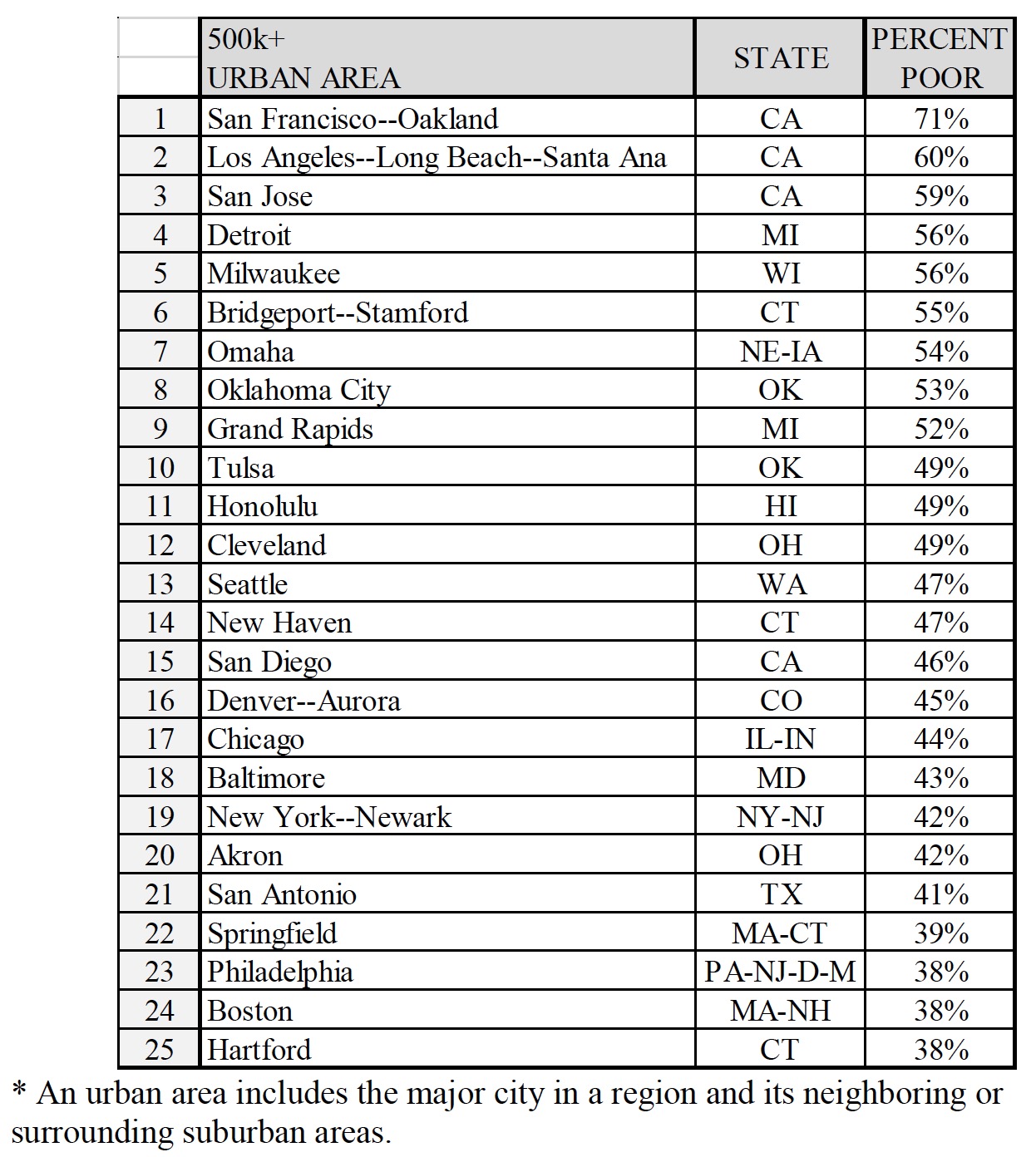
Keeping the wheel steady on America’s roads and highways has become increasingly challenging as drivers encounter potholes and pavement deterioration. Nearly one-third of the nation’s major urban roadways – highways and major streets that are the main routes for commuters and commerce – are in poor condition. These critical links in the nation’s transportation system carry 70 percent of the approximately 3.1 trillion miles driven annually in America.
View this complete post...New York City: The Big Road Fix
Friday, October 16th, 2015
It’s no secret that New York City is dense — full of people going to and fro whether by foot, bike, bus, train or car. Have you ever wondered how they all get along? Who’s responsible for the kinds of changes that keep everyone safe? In the episode of the Big Road Fix, we take a look at one of the most dangerous intersections in the Bronx and see how the city has worked to improve it.
View this complete post...A People’s History of Recent Urban Transportation Innovation
Tuesday, August 18th, 2015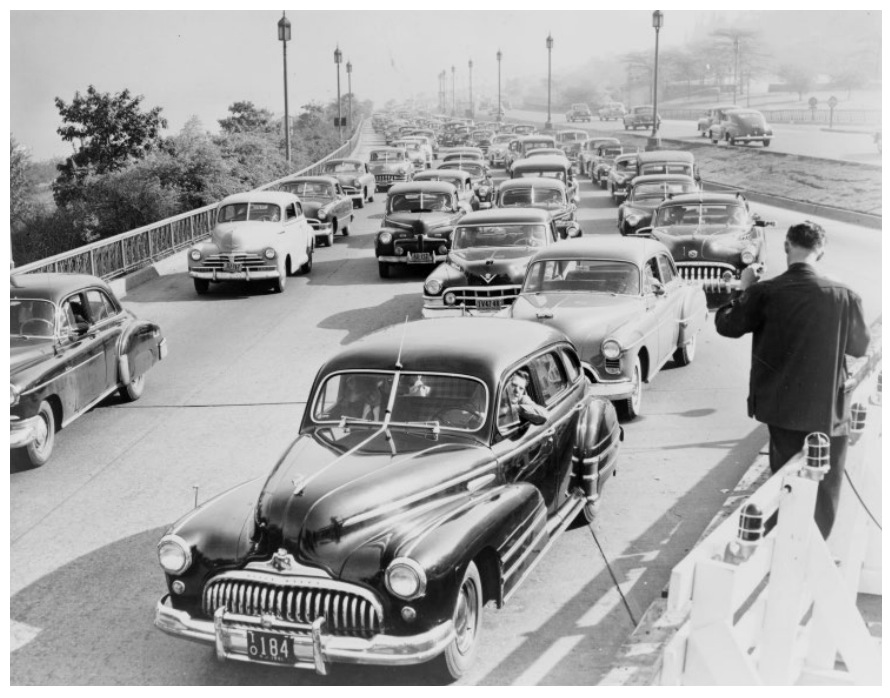
TRANSIT CENTER
Though much progress has been made in several cities, the human-oriented transportation changes examined here are not pervasive nationwide. Only a handful of cities have made lasting reforms that will stand the test of time, while the majority of federal and state transportation policies continue to support auto-oriented development. With the information here, we hope that more urban residents will take up the fight and continue to challenge the status quo and reclaim the streets that are the lifeblood of their cities.
It’s Smart To Be Dense
Thursday, July 9th, 2015
Urban density is fundamental principle of sustainable development. Density supports economic and creative vibrancy, social integration, and a healthy, environmental sustainable development model. As the world’s population continues to urbanize, our cities have two options for growth: densify or sprawl. The private-car dependent sprawl model of the 20th century must change, and move away from a reliance on private cars, to accommodate a more populous, and more prosperous world.
View this complete post...Core Values: Why American Companies Are Moving Downtown
Monday, June 22nd, 2015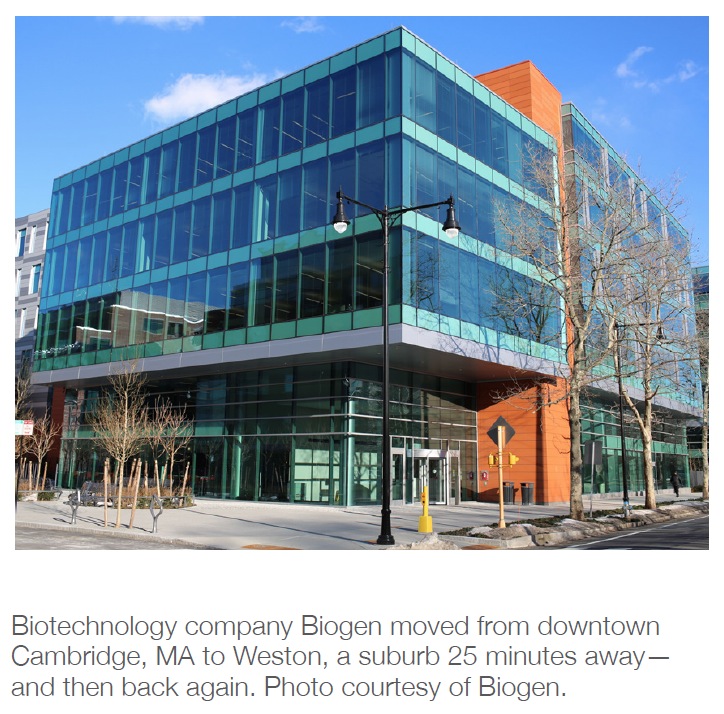
SMART GROWTH AMERICA
Hundreds of companies across the United States are moving to and investing in walkable downtown locations. As job migration shifts towards cities and as commercial real estate values climb in these places, a vanguard of American companies are building and expanding in walkable downtown neighborhoods.
The WalkUP Wake-Up Call: Boston
Friday, March 13th, 2015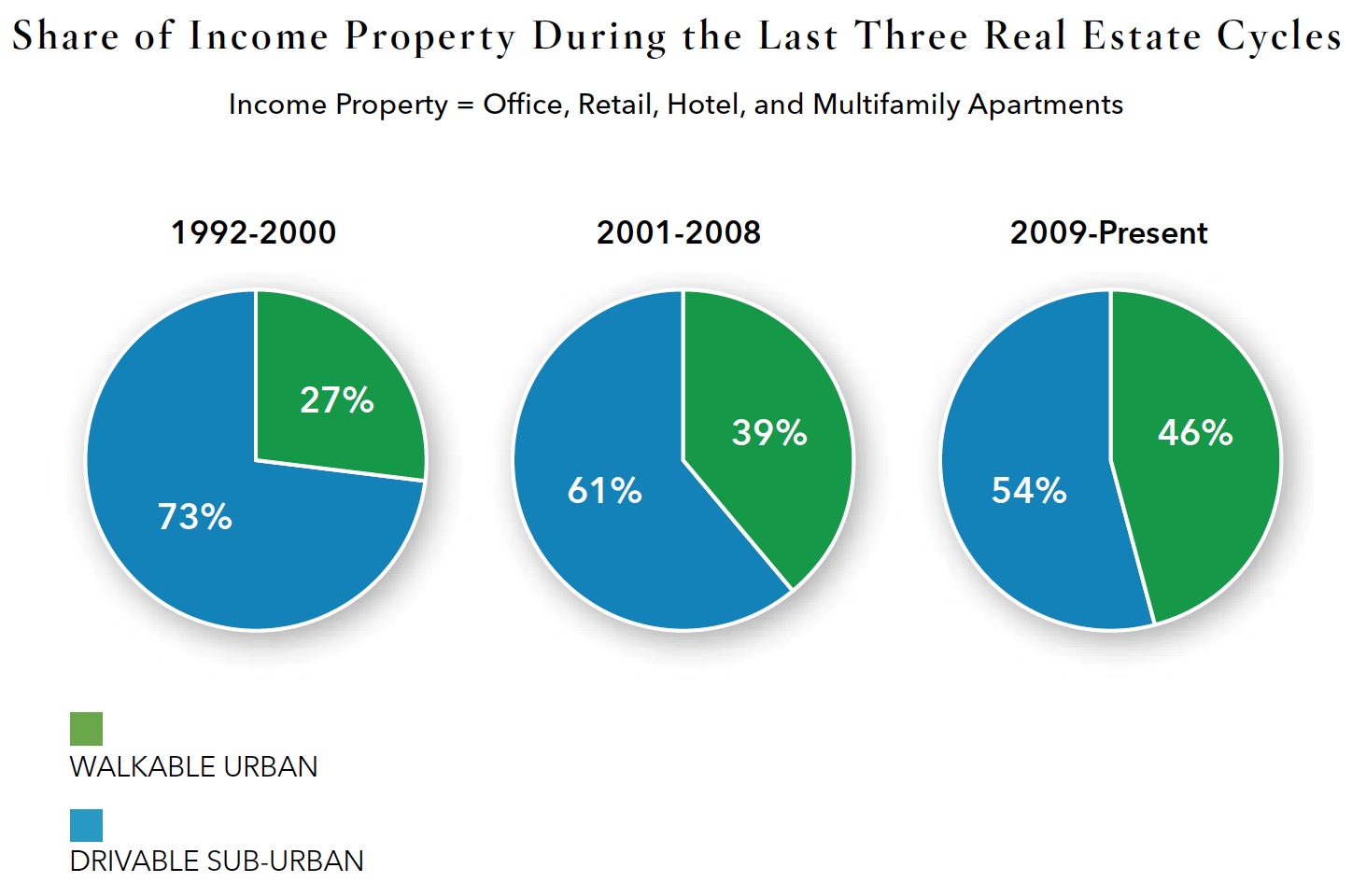
SMART GROWTH AMERICA
In the Boston metropolitan area, walkable urbanism adds value.On average, all of the product types studied, including office, retail, hotel, rental apartments, and for-sale housing, have higher values per square foot in walkable urban places than in low-density drivable locations.These price premiums of 20 to 134 percent per square foot are strong indicators of pent-up demand for walkable urbanism.
View this complete post...STREETFILMS: America’s Love Affair With Great City Streets
Wednesday, February 18th, 2015
All across America people are falling in love with cities. People are craving interaction with their fellow humans. They don’t want to commute long distances to work. They want to be able to safely walk around their neighborhoods and support the vitality of public spaces and the transformation of city streets.
View this complete post...Follow InfrastructureUSA
CATEGORIES
- Accountability (219)
- Aging Infrastructure (760)
- Aviation (131)
- Biking (324)
- Bipartisan (271)
- Bridges (493)
- Broadband (57)
- Buses (160)
- Carbon Tax (22)
- Clean Air (182)
- Climate Change (202)
- Competitiveness (230)
- Congestion (327)
- Dams (77)
- Democrat (123)
- Drinking Water (193)
- Economic Stimulus (276)
- Employment (207)
- Energy (585)
- Environment (615)
- Equity (239)
- Funding (889)
- Global (205)
- Great American Infrastructure (33)
- Green (295)
- Guests on The Infra Blog (305)
- Hazardous Waste (27)
- High Speed Rail (224)
- Highway (785)
- Inland Waterways (204)
- Jobs (251)
- Land Use (99)
- LEED (28)
- Levees (42)
- Local (1,910)
- National (1,527)
- Policy (1,122)
- Pollution (215)
- Private Investment (213)
- Public Opinion (189)
- Public Parks & Recreation (198)
- Public Transportation (1,028)
- Racism (6)
- Rail (506)
- Recession (65)
- Recovery (218)
- Republican (109)
- Roads (1,120)
- Schools (81)
- Seaports (69)
- Smart Grid (98)
- Smart Growth (442)
- Solid Waste (26)
- Sustainability (767)
- Tax (112)
- Technology (397)
- Telecommunications (46)
- Transit (1,333)
- Urban Planning (984)
- Wastewater (184)
- Water Treatment (169)
Video, stills and tales. Share images of the Infra in your community that demands attention. Post your ideas about national Infra issues. Go ahead. Show Us Your Infra! Upload and instantly share your message.
Is the administration moving fast enough on Infra issues? Are Americans prepared to pay more taxes for repairs? Should job creation be the guiding determination? Vote now!
What do the experts think? This is where the nation's public policy organizations, trade associations and think tanks weigh in with analysis on Infra issues. Tell them what you think. Ask questions. Share a different view.
The Infra Blog offers cutting edge perspective on a broad spectrum of Infra topics. Frequent updates and provocative posts highlight hot button topics -- essential ingredients of a national Infra dialogue.
Dear Friends,
It is encouraging to finally see clear signs of federal action to support a comprehensive US infrastructure investment plan.
Now more than ever, our advocacy is needed to keep stakeholders informed and connected, and to hold politicians to their promises to finally fix our nation’s ailing infrastructure.
We have already engaged nearly 280,000 users, and hoping to add many more as interest continues to grow.
We require your support in order to rise to this occasion, to make the most of this opportunity. Please consider making a tax-deductible donation to InfrastructureUSA.org.
Steve Anderson
Managing Director
SteveAnderson@InfrastructureUSA.org
917-940-7125













 RSS Feed
RSS Feed